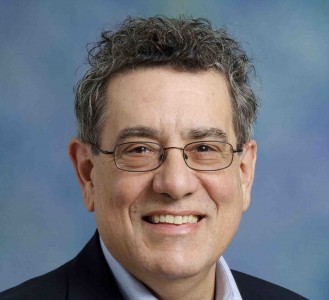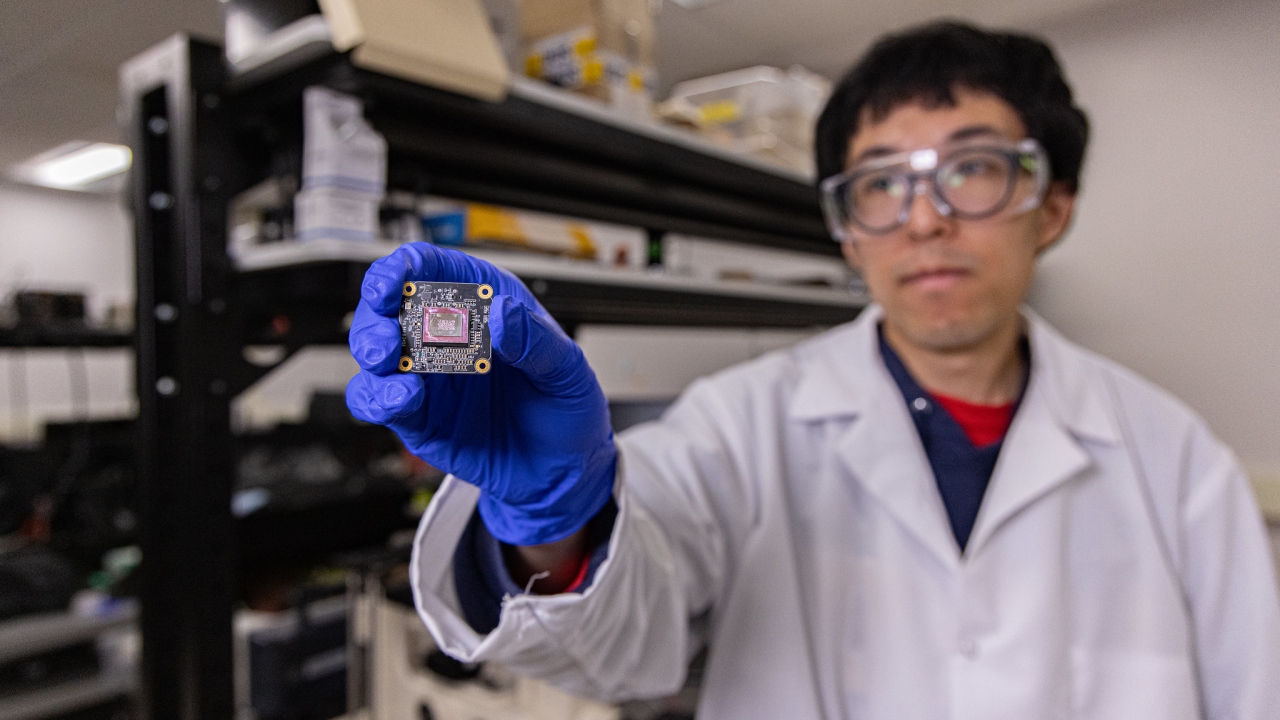Biography: David M. Rocke
 Dr. David M. Rocke’s influence across the UC Davis campus is extensive enough to suggest that he may have perfected the art of cloning, in addition to his many other accomplishments.
Dr. David M. Rocke’s influence across the UC Davis campus is extensive enough to suggest that he may have perfected the art of cloning, in addition to his many other accomplishments.
The distinguished professor of biostatistics — in both the UC Davis College of Engineering’s Department of Biomedical Engineering, and the School of Medicine’s Department of Public Health Sciences — also is director of the UC Davis Center for Biomarker Discovery; director of biostatistics at the UC Davis Clinical and Translational Science Center; and a member of both the UC Davis Genome Center and the UC Davis Cancer Center. With respect to prior campus appointments, he was director of the Center for Statistics in Science and Technology (1995-99); director of the Center for Digital Security (2001-07); and co-director of the Institute for Data Analysis and Visualization, formerly known as the Center for Image Processing and Integrated Computing (1996-2007).
In July 2003, the National Cancer Institute threw its weight — and considerable financial resources — behind the creation of a cancer Biomedical Informatics Grid (caBIG), a virtual network intended to link individuals and institutions around the world, with the goal of accelerating cancer research. Rocke and colleague Cecil Lynch, a professor of medical informatics, led the caBIG effort at UC Davis.
“Sharing data, methods, computer programs and reagents is important, to avoid the inefficient use of resources, and to enable broad-front research progress,” Rocke said, during a 2005 interview, further noting that cancer researchers too frequently work in isolated “silos.”
Rocke even finds time for industry work; since 1996, he has consulted with Celadon on statistical issues related to the company’s development of an immunoassay analysis platform. Celadon offers cloud-based software and science for biomedical research and clinical applications, and pioneered lab methods for the commercial use of a biochemistry innovation known as modified nucleic acids.
More recently, Rocke has been part of a team — supporting David Segal, an associate professor of pharmacology — working to better identify and understand the risks associated with coronary artery disease. In late 2011, the Keck Foundation awarded a $1 million grant to Segal and his colleagues, to fund a study to detect the genetic changes associated with heart disease, and to identify new molecular pathways that could serve as drug targets.
Rocke also explores the molecular mechanisms of the response of cells and tissues to low-dose radiation from environmental and occupational exposures, and studies possible genetic and environmental differences among people, in response to radiation. In this capacity, he made himself available for consultation in the wake of Japan’s massive Tohoku earthquake, in March of 2011, and its related tsunami-influenced nuclear accidents.
Rocke completed his undergraduate work at Shimer College, then obtained both a master’s degree and Ph.D. in mathematics at the University of Illinois, Chicago. He joined the faculty at Illinois’ Governors State University in 1974, serving as a professor of business administration until 1980. He transitioned to UC Davis that year, initially as an associate professor in the Graduate School of Management. He became a full professor in 1986, and during the subsequent two decades expanded his reach throughout numerous UC Davis departments and centers. In 2007, Rocke became a distinguished professor in the College of Engineering’s Department of Applied Sciences; when that department was closed in 2011, he shifted to the Department of Biomedical Engineering.
His honors include the 1997 Statistics in Chemistry Award, from the American Statistical Association; he’s also a Fellow of that organization, and a Fellow of the Royal Statistical Society. He served on the Science Policy Committee for the Federation of American Societies for Experimental Biology, and held a term as treasurer of the International Society for Computational Biology. In October 2007, he was named a Fellow of the American Association for the Advancement of Science, for his work on applying statistics and computational methods in biology.
Rocke also has weighed in on what has become a somewhat controversial topic of our times: the possibility that cell-phone radiation might be linked to brain cancer. He dismisses the notion, pointing out that studies have yet to demonstrate a mechanism by which human tissue is damaged by radiation of this wavelength and minimal energy. If the impact of a single X-ray on the body is akin to being slammed by a 9-pound bowling ball, he suggests, then cell-phone radiation — less than one-billionth as powerful — would be comparable to being covered by 9 pounds of feathers … one feather at a time.
Yes, the possibility of slight risk remains, but Rocke contends that isn’t the point.
“If you don’t do anything involving unknown risks,” he insisted, in a 2010 interview, “then you’d spend your entire life cowering in the closet, with your head beneath a blanket.”




